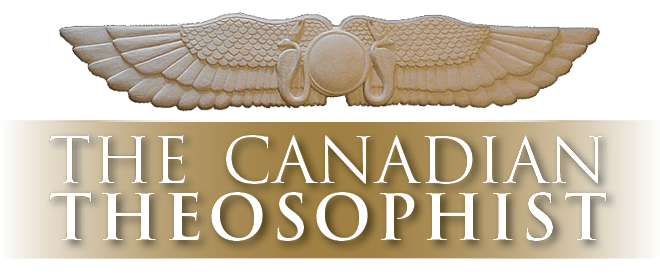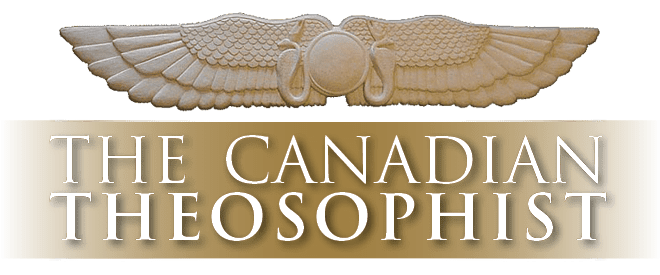
The Official Website
of the Theosophical Society In Canada
Object
To form a nucleus of the Universal Brotherhood of Humanity, without distinction of race, creed, sex, caste or colour.
To encourage the Study of Comparative religion, Philosophy and Science.
To investigate unexplained laws of Nature and the powers latent in man.
A Short Introduction to Theosophy
The word theosophy has been used in the Occident for about 2,000 years to indicate knowledge of divine things or knowledge derived from insight and experience as well as intellectual study. It comes from the Greek theos (god, divinity) and sophia (wisdom), and means divine wisdom — wisdom concerning life from a standpoint of the divine consciousness which informs the universe. While the modern theosophical movement can be traced back to Blavatsky and her teachers, it is part of a spiritual movement as old as thinking humanity. Its philosophy is a contemporary presentation of a perennial wisdom underlying the world’s religions, sciences, and philosophies. Theosophical concepts are not dogmas; only the ideas that have value need be accepted. Theosophical books are considered neither as revelation nor final authority, but as guides in the individual’s search. However, there are some basic concepts that theosophy brings to light.
A primary idea is the essential oneness of all beings. Life is everywhere throughout the cosmos because all originates from the same unknowable divine source. Consequently, everything from the subatomic to plants, animals, humans, planets, stars, and galaxies is alive and evolving. Each is divine at its root and expresses itself through spiritual, intellectual, psychological, ethereal, and material ranges of consciousness and substance.
Exhibiting this fundamental oneness, altruism and compassion are human expressions of cosmic and planetary realities. Humanity is more closely joined inwardly than physically, and our thoughts and feelings have a potent impact on others. By following our highest inner promptings as best we can, we benefit our immediate surroundings and humanity as a whole. The ideal is to put the welfare of humanity and all that lives ahead of one’s own progress.
As beings rooted in divinity, we each have the ability to discover reality for ourselves. To do this we must learn to judge what is true and false, real and illusory; not blindly follow the dictates of authority.
Reincarnation and karma are the most widely known ideas popularized in the West by theosophists. Although considered Oriental, reincarnation was present in many traditions including Platonic philosophy, Judaism, and early Christianity, where it was not excluded from Church teachings until the 6th century. Together, reincarnation and karma help explain our character and circumstances in light of past thoughts, actions, and desires. We are responsible for our own lives. No one else — divine or human — can take away or neutralize the results of any of our actions.
